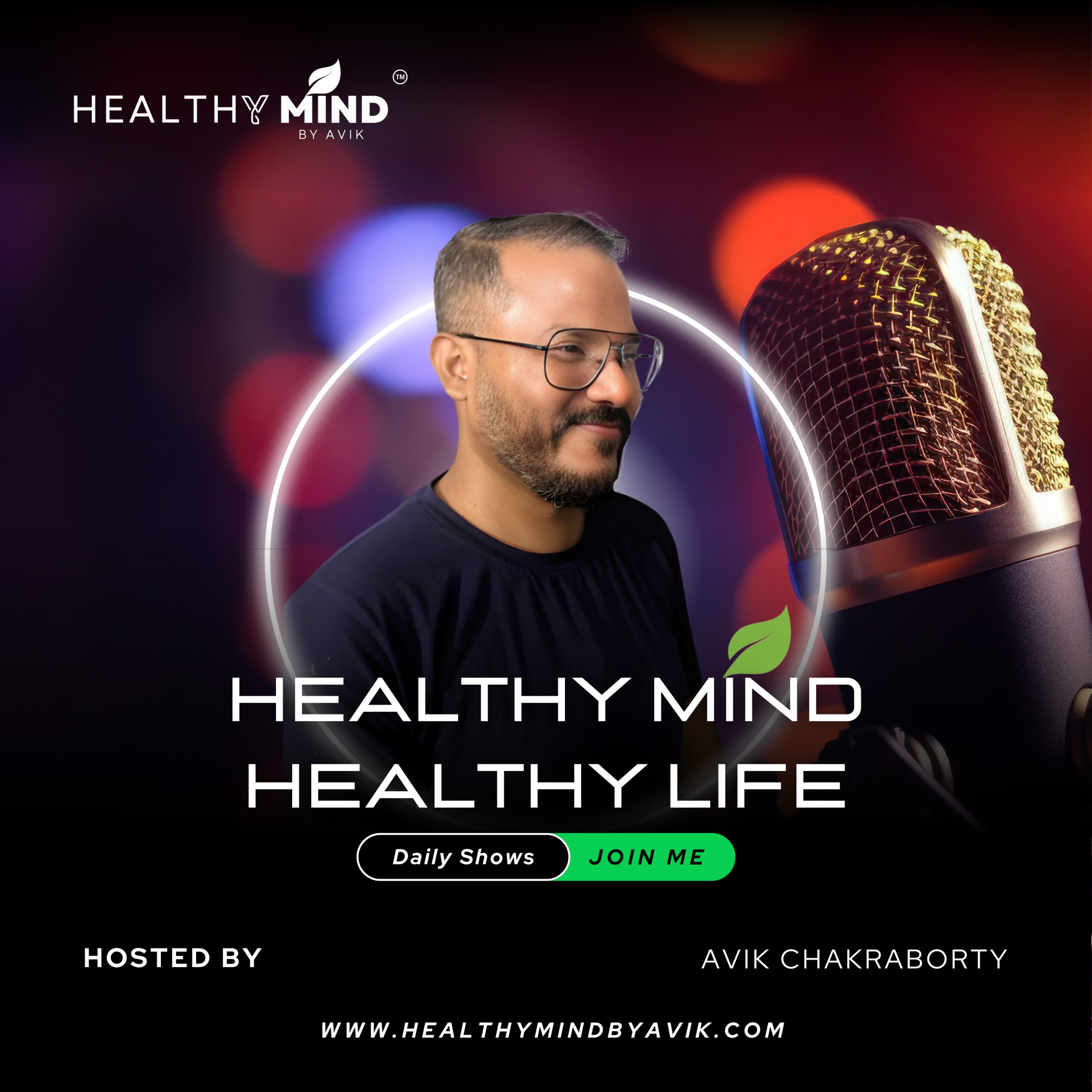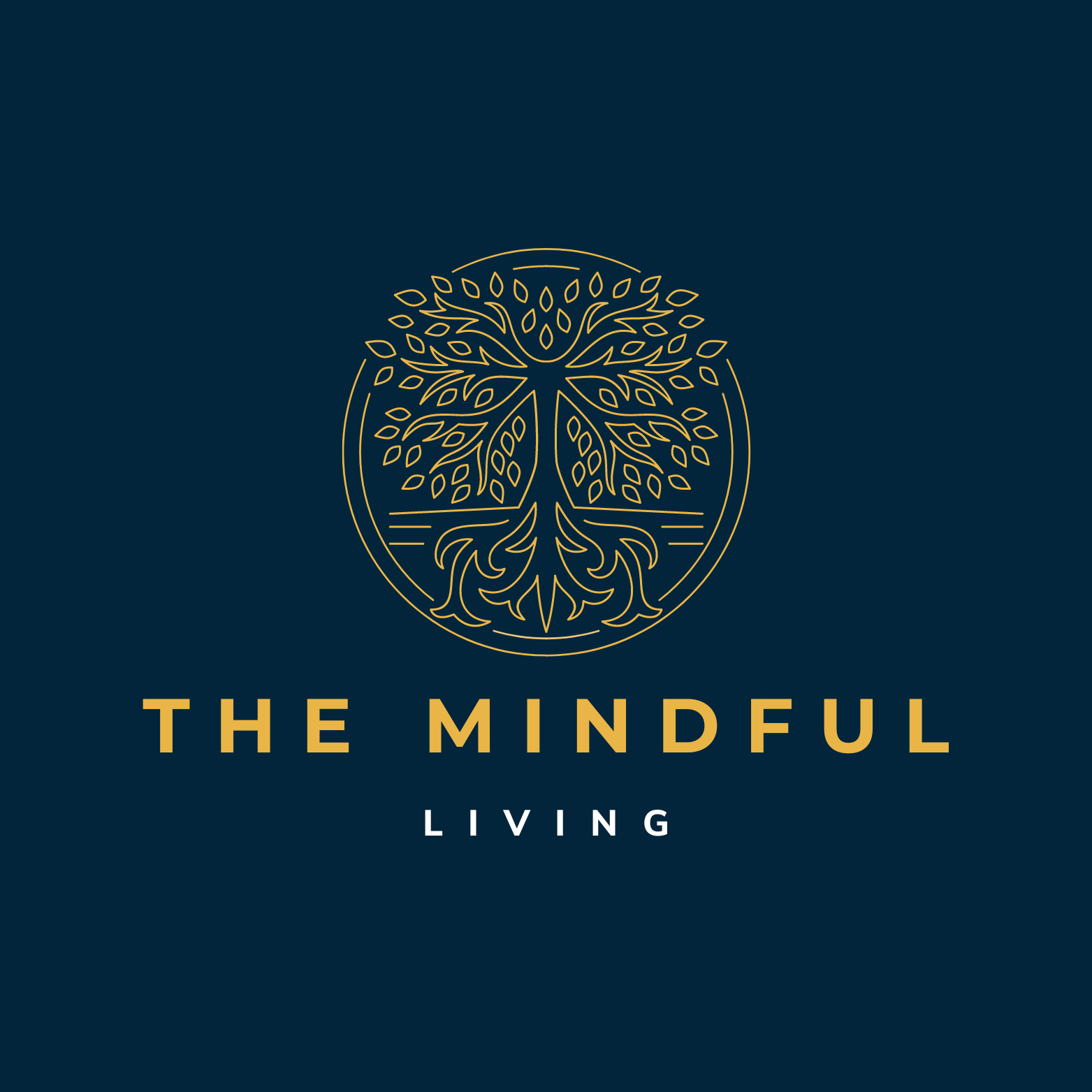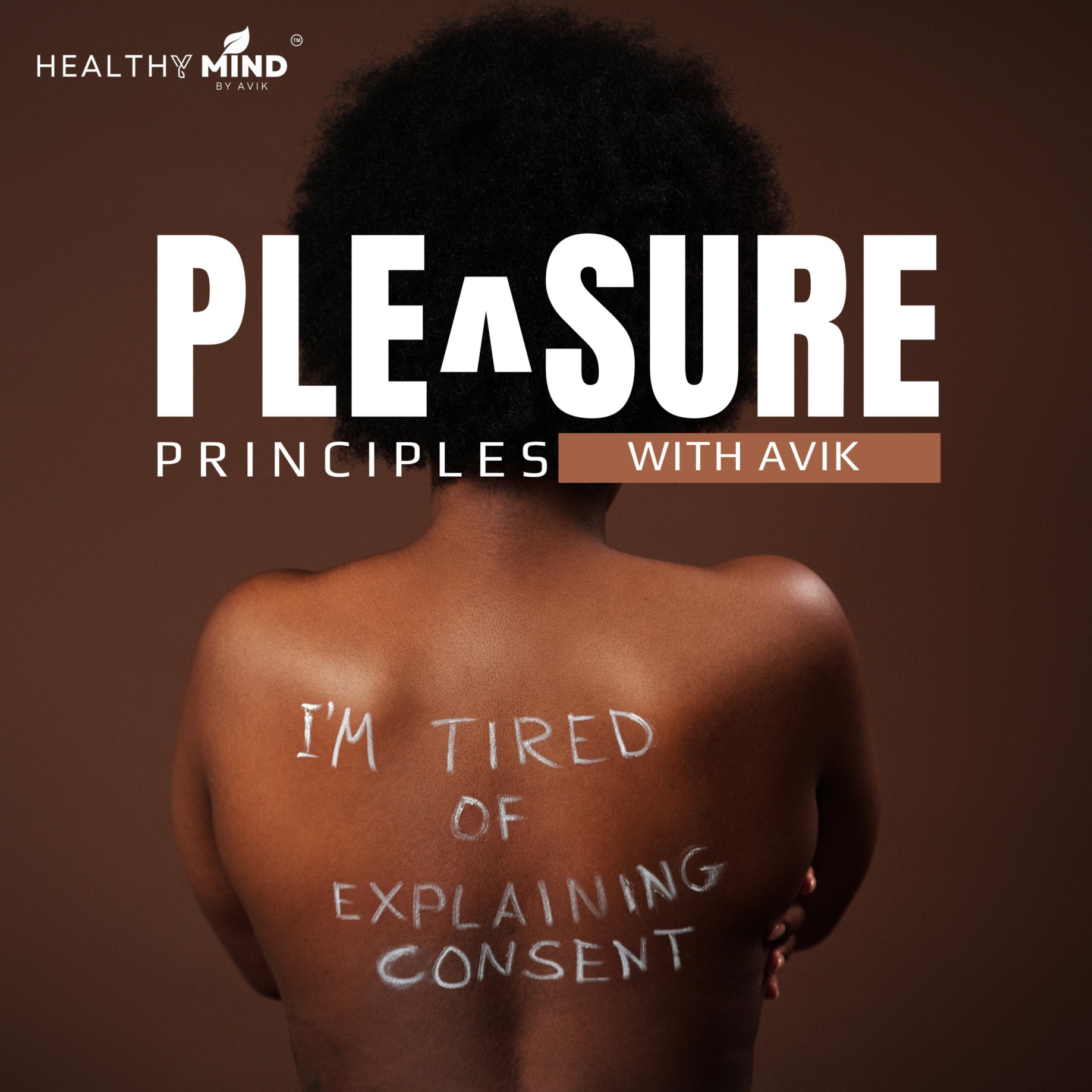
Mind Over Masculinity
Let’s stop asking men to "man up" and start asking how we can lift them up. After all, mental health is not just a women’s issue or a men’s issue—it’s a human issue.
Take the first step today. Talk, listen, and advocate. Together, we can make a difference.
Mind Over Masculinity
Unlocking Potential: Transforming Math Education and Resilience for Personal Growth and Professional Success
Imagine unlocking the potential of mathematics to transform your life, both personally and professionally. Join us as we sit down with Dr. Craig Hain, affectionately known as Dr. Dell, who shares his personal journey and innovative approach to making math education accessible to all. Discover how transformative educators shaped his resilience and growth mindset, and how his pioneering methods address the shortcomings of the traditional public school math system in the United States. Dr. Dell's comprehensive program, featuring tutorial videos and tools like Wolfram Alpha, simplifies learning math from the basics to calculus, empowering students to overcome challenges with clarity and confidence.
Explore with us the profound impact of math as a practical tool in everyday life and technical careers. Through personal stories and insights, Dr. Dell illustrates how a strong foundation in math can remove barriers, solve problems that words alone cannot, and even guide us in making wise life choices. He introduces the concept of "wisdom tools" to help us navigate the impact of habits and addictions on our personal growth. Dr. Dell provides valuable resources on his website, craighain.com, encouraging everyone to invest in themselves and lead with courage. Whether you're tackling math problems or personal challenges, this episode promises to inspire you to redefine your limits and pursue success with newfound resilience.
Automate Social Media Post
Make Short Clips From Long Videos
Loved by 4M+ marketers, entrepreneurs & creators
Create and translate videos
Create and translate videos with HeyGen's AI Video Generator
Buzzsprout Podcasting
Disclaimer: This post contains affiliate links. If you make a purchase, I may receive a commission at no extra cost to you.
-----------------------------------------------------------------------------------------------------------------
Want to be a guest on Mind Over Masculinity? Send me a message.
-----------------------------------------------------------------------------------------------------------------
Stay Tuned And Follow Us!
- YouTube - https://www.youtube.com/@healthymind-healthylife
- Instagram - https://www.instagram.com/podhealth.club/
- Threads - https://www.threads.net/@podhealth.club
- Facebook - https://www.facebook.com/podcast.healthymind
- LinkedIn - https://www.linkedin.com/in/newandnew/
I am your host Avik, and today we are diving into a topic that might surprise you how math, a subject many of us have a love-hate relationship with, can actually help us build mental resilience, improve our problem solving skills and even bolster our mental health. So our guest today is none other than Dr Craig Hain, so welcome to the show, dr Craig.
Speaker 2:Hello.
Speaker 1:Yeah, hi, welcome to the show. Yeah, hello, yeah, hi, welcome to the show. Yeah. So, uh, dr craig, like uh, before we start, I'll quickly love to introduce you to all of our listeners.
Speaker 1:Dear listeners, dr craig is also known as dr dell, a math educator, innovator and all-around legend in transforming how people approach numbers. So, with a PhD in Algebraic Number Theory, decades of experience and an incredible ability to simplify even the most complex problems. So Dr Dil has dedicated his life to breaking down the barriers in education and teaching us how to invest in ourselves. So today we are looking at math through a whole new lens, so we are exploring how it can strengthen your mindset, can help you tackle life's obstacles and empower you to lead with clarity and the confidence. So, gentlemen, grab your calculators or don't, because this is going to be a game changer. So welcome to the show again. So, dr Delick, most men don't wake up thinking like I need math to help me get through life, but your story is deeply personal. So if you can share how your own challenges with the math and education shaped your resilience and the mindset, All right.
Speaker 2:Well thank you, Avik, All right. Well, thank you Avik, First of all, to get my story in detail.
Speaker 2:I have written it in a book, along with what is wrong with current public school math education in the United States and a solution to the problem. Now to get the full story, you can go to my personal website, which is my name craighanecom C-R-A-I-G-H-A-N-Ecom, and there you can get a free PDF copy of this book how and why Public School Math is Destroying the USA and my story is in that book, along with everything I'm going to tell you USA, and my story is in that book, along with everything I'm going to tell you Now. The bottom line is, I was taught math by three wonderful teachers that saved me, although I had some teachers that almost got me out of math completely when I was in high school, but I was saved, and so I've been learning math and teaching math and applying math for many decades now. So I've been learning math and teaching math and applying math for many decades now, and one of my missions in life was to create a math education program that any student would succeed with. Most students fail at math in the United States. I'm talking now about the United States math, not other countries, and thanks to technology starting about 10 years ago, I was able to do this. Up until 10 years ago, there was no practical way for me to do it, but I've done it now because I now am a tutor math tutor with notes and exercises, and I use tutorial videos off of Amazon Web Services, notes and exercises and on top of that, I've realized that in addition to learning math, there were many other what I call wisdom tools that a student needs to have mental health and physical health and all of that. And so I've also added to the math that we have, and I'll tell you a little bit more about some math in a and so I've also added to the math that we have and I'll tell you a little bit more about some math in a minute. I've also added a bunch of wisdom tools and you can have access to everything for $9 a month. All the math.
Speaker 2:Now the math starts with practical math how to use a scientific calculator to do all your arithmetic calculations the TI 30 XA scientific calculator to do all your arithmetic calculations the TI-30XA, which is a $10 calculator. Then I teach practical math. In about three months, you'll learn all of the algebra, geometry and trigonometry you knew for practical math in about three months, which is unheard of in the United States, and that's because I teach you all of that once you've learned to use the calculator in about 36 lessons. Then I go on from there and I teach you math you'll need for the SAT and the ACT if you're going to go to college.
Speaker 2:Then if you're going into science engineering, I have the upper tiers where I teach you advanced math for science engineering at a much deeper level, and it used to be very difficult to learn with the old manual tools. Now it's very easy because I use a modern 21st century tool called Wolfram Alpha and that makes learning pre-calculus subjects trigonometry, analytical geometry etc. And calculus and differential equations all very easy, and that's what I do in essence. So if you go to my website, craighanecom, you can get the book, the PDF copy of the book, where it explains all this. You can also go to what we call the Triad Math Tribe and for $9 a month you can get access to everything that's amazing, yeah and uh.
Speaker 1:So what would you say to men who feel like their past struggles whether it's, uh, with the academics, relationships or, um, anything else like define their limits yeah well, I discussed this with my wisdom tools, and there's a lot of them.
Speaker 2:There's a lot to it. First of all, you have to understand that every action you take has consequences, and you have to acquire the wisdom of understanding what will be the consequences of your specific actions. Then you have. Once you have that wisdom, you can choose the actions that give you the consequences that you desire. And that includes, for example, example, what habits and addictions do you have? We all have habits and addictions. There's good ones and there's bad ones, and you have to analyze that. I had to go through this in my life. I've been around a long time. Do you know how old I am?
Speaker 2:avic um no, you tell me would you like to guess, and then I'll tell you, just listening to my voice 62.
Speaker 2:Well, that's a good guess. I'm 86 years old. I remember Pearl Harbor, okay, world War II. I have had exciting life. My book explains all this, by the way my story. I could spend hours telling you the adventures I've had in my life, ups and downs.
Speaker 2:Life consists of problems and opportunities, and what I teach you to do in the wisdom tools is how to deal with your problems and take advantage of your opportunities. Math is one component of it. It's not the only thing, but it's a big part of a certain thing. There's a lot of problems you need math to solve. There's a lot of opportunities you need. For example, if you know practical math, which you can learn in about four or five months with me, you can get pursue a technical career that'll make you fifty dollars an hour, instead of some job you don't like that for 20 an hour. I talk about intrinsic versus extrinsic motivation and so on and so forth. There's about 20 of these wisdom tools and a couple of them address specifically your mental health and your physical health, and I'm 86 years old today and I don't have any health problems of any kind that I know of.
Speaker 2:I don't take any medicine the last time I was in a hospital, I was six years old to have my tonsils out, and the reason for that is is the thing I teach you in the wisdom tools. And, by the way, I had problems in my life. I I've had difficult problems that I've had to solve. If that wasn't for that and these tools, let me do that okay, wow.
Speaker 1:So, um, I mean, math isn't just the numbers, it's a way of thinking. So how can adopting mathematical thinking help men navigate traditionally masculine challenges like problem solving, leadership or even emotional resilience?
Speaker 2:well mathematics. There's two languages in the world. There's there's natural languages in my case it's english, um, but there's all kinds of natural languages. Then there's math, which I call god's language, and that's math is. Whether you're, wherever you're from, math is math. Now, math is a very big subject. It's a huge subject like music, all kinds of math. So what I teach is the math that you will need to do, the practical things in your life that you want to do, and that'll vary from person to person.
Speaker 2:That you want to do and that'll vary from person to person, and that's what I explain and teach Now. Math consists of two things concepts and tools. The concepts of math have always been pretty easy to learn the old manual tools that our ancestors developed, which were wonderful. It's the reason we have a modern civilization. The old manual tools are very difficult to learn, difficult to use and most, most students quit.
Speaker 2:I teach the modern tools which makes it easy the ti30xa calculator, for example, ten dollar calculator. If you'd have had one of those during the manhattan project when they were doing the atomic bomb, that would have been worth a million dollars. Because you'll do calculations with that calculator now that are virtually either impossible to do manually or will take a long time, and they do it automatically. So I only use the calculator to do arithmetic calculations and that's the reason why you can learn practical algebra and geometry and trigonometry all three of those in one semester, four months.
Speaker 1:Wow.
Speaker 2:Then you're ready for the military, you're ready for a technical career. There's probably hundreds of technical careers today that you could pursue to make a really good living if you knew the math you need, because math is the language you need to solve the problems that you can't do with natural language. Math is God's language for solving problems that otherwise you can't solve.
Speaker 1:All right, mr. So, like also on this, like many men feel immense pressure to have it all figured out. So how does math teach us to embrace uncertainty and tackle the problems that we don't immediately know how to solve?
Speaker 2:Well, you can express concepts with math, concepts that you can't express with natural language. For example, if you point a gun up at a certain degree angle and fire it, and it has a certain velocity, when the bullet leaves the thing, where's it going to land? I do not know how you could figure that out with any natural language, but with math it's easy. You set up an equation, you solve the equation and boom, you know where it's going to land. It follows a parabolic curve. You use a little bit of calculus and, of course, with Wolfram Alpha, the modern tool, you can very easily then see okay, this is where it's going to land. Now, that's just one of a million examples. You set up an equation or a model a math model science and engineering consists of math models.
Speaker 2:Math models require you understand the concepts. The concepts aren't terribly difficult. Then the problem is how do you solve the math models? And with the manual tools it can be very difficult or impossible. With war from alpha it is very easy, and so math today has gone from a difficulty level for science and engineering of maybe eight on a scale of one to ten down to two, and so a lot of people don't go into science and engineering and technical subjects because of the math. It's a barrier. It's no longer a barrier and if you take my training, that barrier is eliminated. And uh, that's what it's all about yeah.
Speaker 1:So um like uh, can you share a story I mean maybe from your own life or students where this mindset made all the difference?
Speaker 2:I didn't understand. Ask that again.
Speaker 1:I mean if you can share a story about this from your life or from any student's life where this mindset made the difference.
Speaker 2:Well, what I've learned all my life is adventures.
Speaker 2:And adventures, of course, can involve lots of things, and one of the adventures, many of the adventures I had are called businesses. I formed businesses to do something that I wanted to do. So, for example, I built the world's best eighth mile drag strip in Terre Haute, indiana, in the early 1970s and it was very successful for a couple of years. And then we had an economic problems and the drag strips and it was very successful for a couple of years and then we had an economic problems and the drag strip failed and I went bankrupt. Now money's never.
Speaker 2:I have a whole thing on money. What is money and what's financial freedom? I have had financial freedom my entire life, because if you do the right things in life, you'll be provided what you need. At least, it depends on what tribe you're in and where you're located, but in the united states that'll be the case and uh, so then that failed. Okay, that led me. Then I formed a new company, h&h racing gasoline, and actually that got stolen from me. Then I formed a new company called the dynabrain, where I to test races on dynamometers and and I had nascar customers. My, my number one customer was a guy named dale earnhardt, if you follow nascar racing.
Speaker 2:You've probably heard of dale earnhardt well he was my number one customer.
Speaker 2:I met dale before he became a famous racer and so on, and that company failed because intel quit making a microprocessor. So I went to the next thing. You're going in life you're going to have a lot of what you call failures and you're going to think your failures are bad, they depress you when they happen, but think of a failure as an opportunity to go achieve another success. And so I've had a whole sequence of failures and then successes, and some of my successes made me millions of dollars. And then I could do all sorts of things. I traveled the world, I've been up the Amazon river and swum with the Indians and Istanbul, turkey and Spain and Europe, and blah, blah, blah blah.
Speaker 2:All of that was because of math, the tool it gave me to do the things I wanted to do. I couldn't have done any of those things without math me to do the things I wanted to do. I couldn't have done any of those things without math and I was lucky that I had three good teachers. That saved me. Because I was told when I was in high school I tell this story in my book when I didn't do well in algebra when I was a freshman in high school and I was told by my principal I would never go to college.
Speaker 2:Then I got lucky and I had a good teacher in geometry and I did well in geometry and then she had me go to a university in my hometown. I lived in Greencastle, indiana, and this was DePaul University and I took college algebra with a professor there, dr Clint Gass, and he was a good teacher and I learned that they did well. So the point being, if you've done bad in math, if struggle with math, that's because you've had a bad teacher, that's because you haven't been taught properly. It's not your fault. It's probably not even your teacher's fault, because a lot of math teachers don't know how to teach math.
Speaker 2:They don't even know what math to teach, and the every math textbook today in india and the united states is obsolete because they're full of manual tools that are obsolete. They're also full of theoretical stuff that you don't need to know. I mean, for example, the square root of two is an irrational number. You learn that in algebra. So what, who cares? The only people that care about irrational numbers are theoretical mathematicians, not practical people. So I teach the practical stuff that you're going to use.
Speaker 1:Understood, yeah, and like many. So math requires focus on the discipline as well. So how can incorporating this kind of mental fitness into our daily lives strengthen our overall mental health?
Speaker 2:What do you say? I'll say that again. I'm sorry, I didn't understand. You Say it again.
Speaker 1:I'm saying like. I mean, math always requires focus and the discipline. So how this kind of mental fitness, incorporating this kind of mental fitness into our daily lives, strengthen our overall mental health?
Speaker 2:Well, if I understood your question, well, if I understood your question.
Speaker 1:Okay, so I mean you can, you can, uh, share any of the practical habits or maybe the exercise that you would recommend someone who wants to develop the mental discipline well, I talk about in one of my wisdom tools.
Speaker 2:I talk about extrinsic versus intrinsic motivators. What you want to do in your life are things that you enjoy doing, and some of these things you won't make any money, but some you will, and so I. The last time I had a job just to make money which is an extrinsic motivator I was 17 years old. Since then I've only done things I enjoy doing, and some of the things make money. So, for example, I love to teach math, and so I would tutor math. But it could be anything. Let's say, you're a good musician, well, maybe you can make money as a musician, or maybe somebody will pay you to teach them music. But find things to do that you love to do and some of the things people will pay you to do, and then you'll go ahead and you'll be successful in life. That's, and math isn't necessary for everything. There's things you can do in life without math, but there's an awful lot of things you can do with math and that will open up all sorts of possible fields for you to pursue, to see if you love them.
Speaker 1:But do something you love to do okay and uh, so if I have to ask, like, success in math and life, uh, are very different for everyone. So can you tell me no, no, no, of course, not absolutely not.
Speaker 2:Success to me for any person is doing something that you're good at, that you enjoy. Now, there's lots of things in life I am not any good at. I couldn't make a living. I'm lousy at music, I'm lousy at art. There's all sorts of things I cannot do. As a matter of fact, every time I meet someone, whoever it is, they know something I don't know and they can do something I can't do. They know something I don't know and they can do something I can't do. So you find something you that you can do.
Speaker 2:This the whole idea of IQ test is bullcrap. Don't, don't worry about IQ. Worry about what you're, what you can do, that you're good at. Get really good at it, and then people will pay you to do it, or they will pay you to teach them to do it, and then then you're going to be happy. You're going. You're going to be only make money doing something that you enjoy doing. In other words, every time I do something that makes money, I I love doing it and I explain that in my wisdom tools.
Speaker 2:There's a thing called flow and I explain it, my wisdom, to them. You need to understand flow. You need to understand another concept called convex options. That's my wisdom tools. You need to understand that Intrinsic versus extrinsic motivator. You need to understand that. And then, finally, how do you have good mental health and good physical health? Now some people say, well, that's your genetics, well, that's important. But believe me, there's many more important things in your genetics, and how? So I explain that in my wisdom. How do you? You want to have good emotions. You want to. You want to love people and you don't want to hate anyone. You don't want to anger and fear. You want, you want to have good, positive emotions. You want to love people and you want to look forward to things and have faith that things will work out.
Speaker 1:And.
Speaker 2:I explain that a lot in my wisdom tools, because to me a good life is where you've done something. To me is helping other people have a good life. Improve their life, and then that'll help you improve your life.
Speaker 1:That's true, okay, okay. So, uh, I mean, what does uh like? You were a big advocate for investing in yourself, right? So what does that mean for men, and how can they start making that investment today?
Speaker 2:Well, just doing the things I said. Investing in yourself means find out what you are good at, and that'll be something you enjoy doing and then get good at it. Practice it, get good at it. If you need a mentor, you probably will. Whatever it is you want to do, go find somebody that's already good at it doing it and ask if you could work for them, even for free, to start with and help them, and have them teach you and learn to do it and get good at it, and then you can help other people. You can almost anything that if you like it and if you have a natural talent for it, like cooking, for example. You don't want to be a good cook? Well, go work for a good cook, learn to cook. It's going to probably take you anywhere from two to four years to get good at something to where you're really pretty good at it. You don't have to be the best in the world, you have to be good at it, and then other people will come to you and pay you to do it or to teach them to do it. People will come to you and pay you to do it or to teach them to do it. So find something you like, and you just have to experiment with things and see what you like.
Speaker 2:Don't go to college unless you know why you're going. I've got a whole thing on should you go to college or not. Some people should, but most people should not. And what should they do Then? I've also got training on if you are going to go to college, if you for a good reason to go, how do you do it with no debt? And I teach you how to do that, how to go to college and get a degree without any debt. I went all the way through. I was. I was the only person in my family that ever got a college degree. When I was a young man. I went all the way through college, got a phd and I incurred virtually no debt, and I teach you how to do that.
Speaker 1:That's lovely, yeah, great. So that's an incredible conversation. Thank you, dr Dell, for sharing your wisdom and stories and the practical advice today and today. And it's amazing like how something as seemingly simple as math can unlock so much potential in our lives. So for all the listeners out there, remember that resilience isn't about never failing. It's about learning, adapting and moving forward. So, whether you start by tackling a math problem or rethinking a personal challenge, or just taking a small step towards investment self-investment, I would say the journey starts with you.
Speaker 2:And AVEC. Let me finalize that. Thank you very much. Let me say this If you go to my website, craighaincom, there's a lot of free material there too, a lot of free stuff, free books and a lot of things, and then also how to get started, for $9 a month, going down the path of great success. Go to my website, look at it, get a lot of free stuff, get the free book and then, when you're ready, embark on the tribe for $9 a month and that'll get you started down a path of great success guaranteed.
Speaker 1:That's lovely, that's really, really lovely, and with this only I'd love to mention that until next time this is your host, avik, reminding you to lead with the courage, think with clarity and always invest in yourself. So take care.
Speaker 2:Thank you, Avid.







